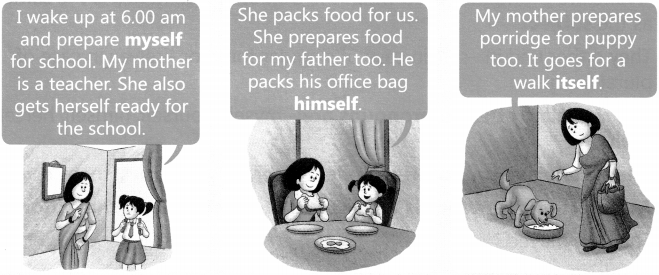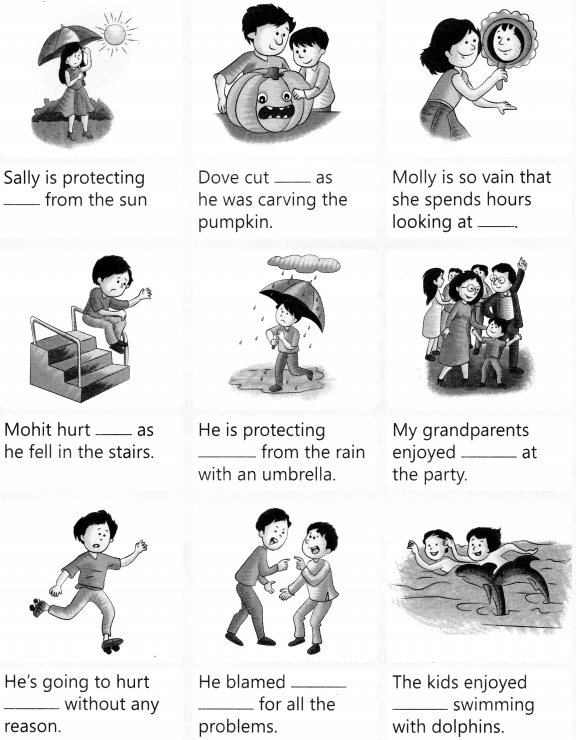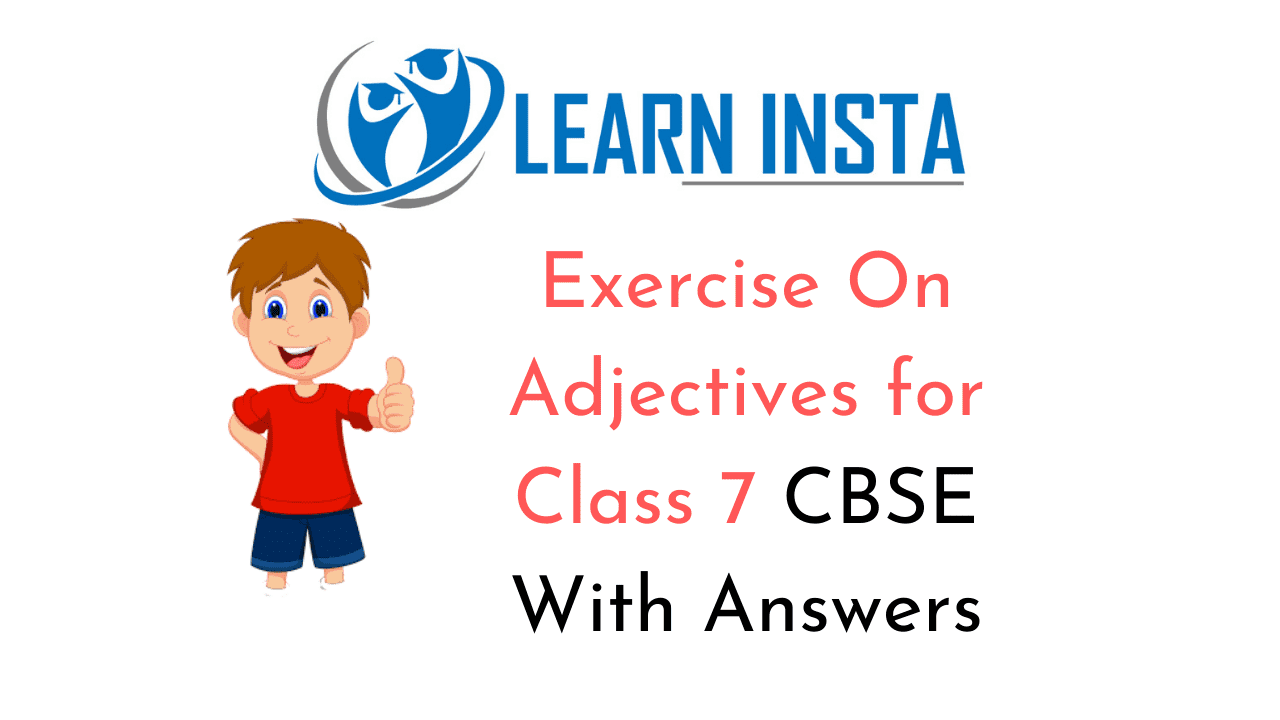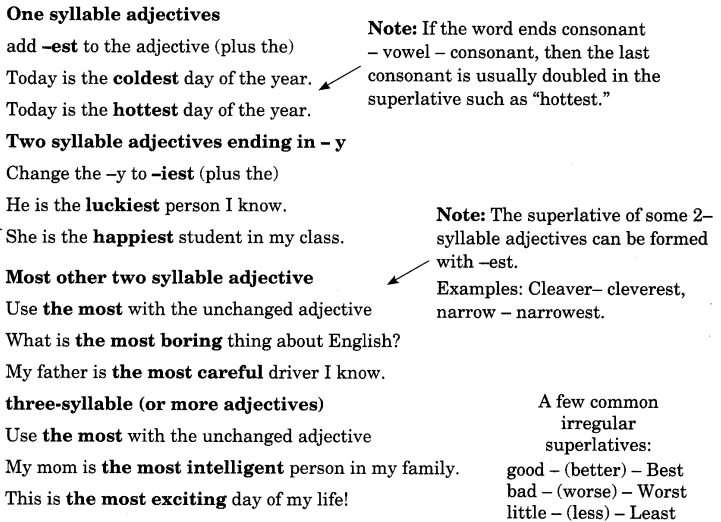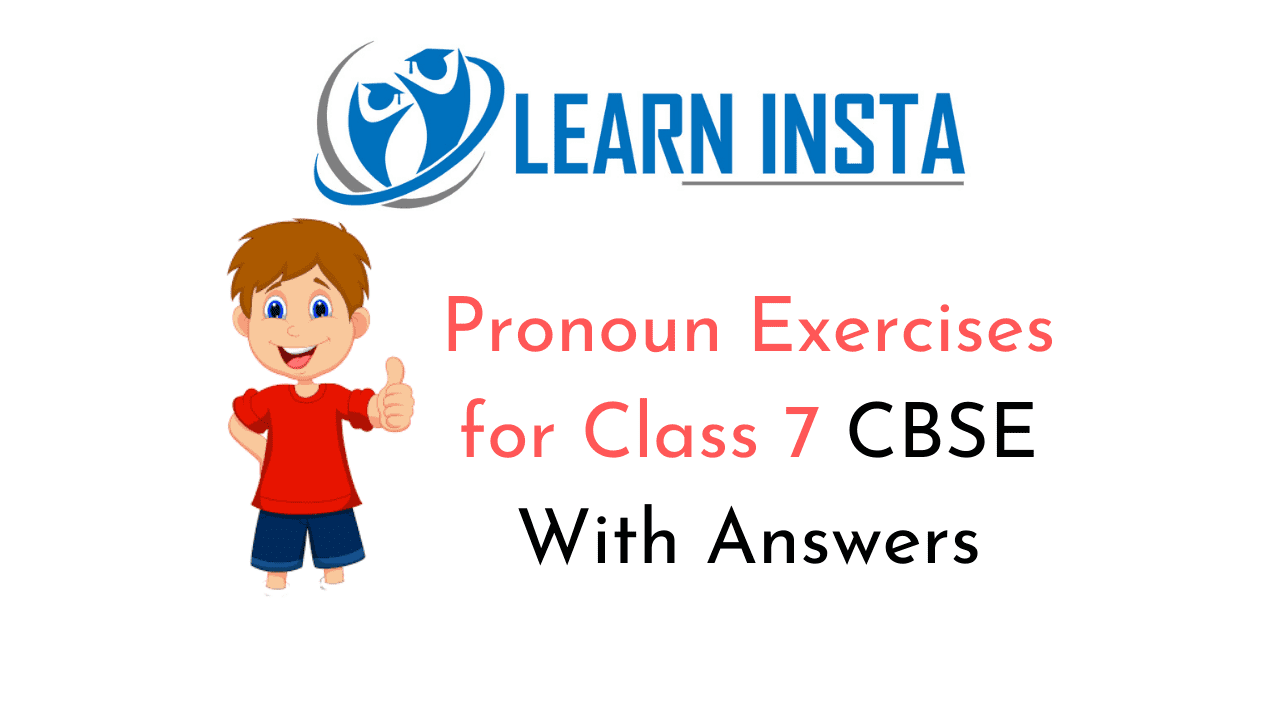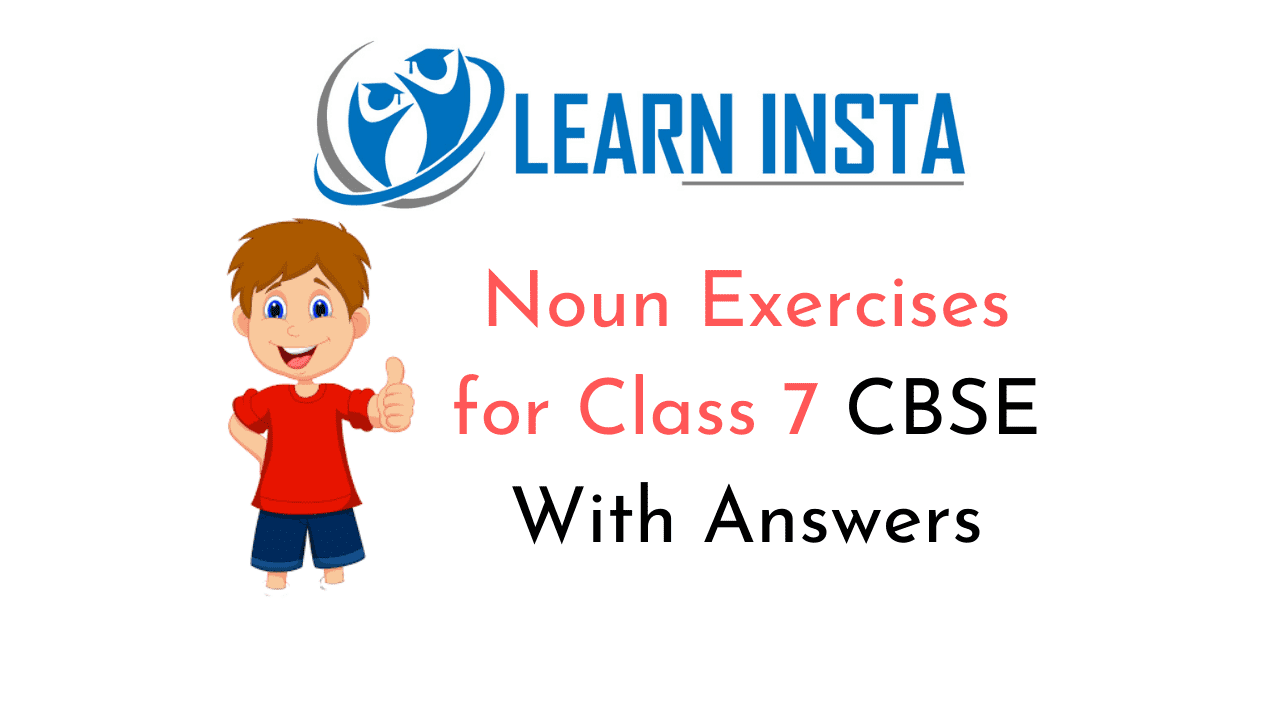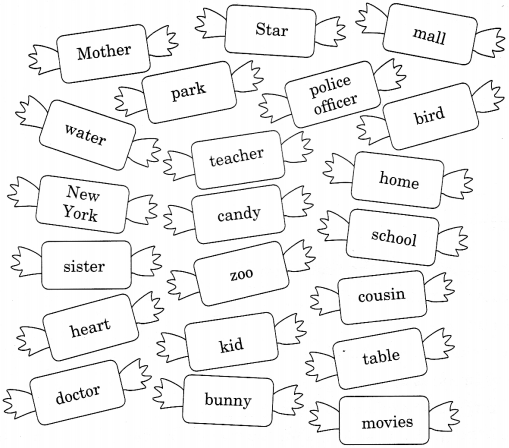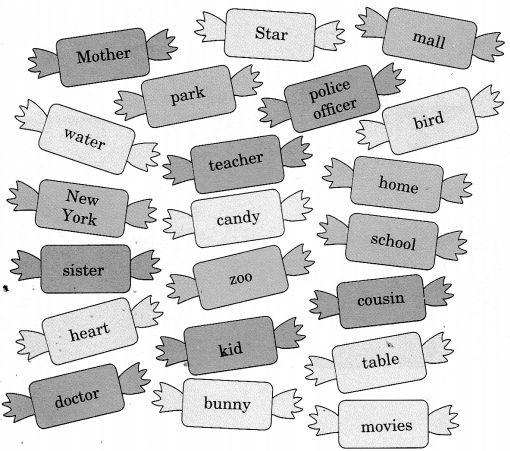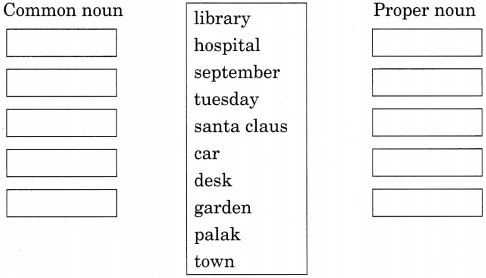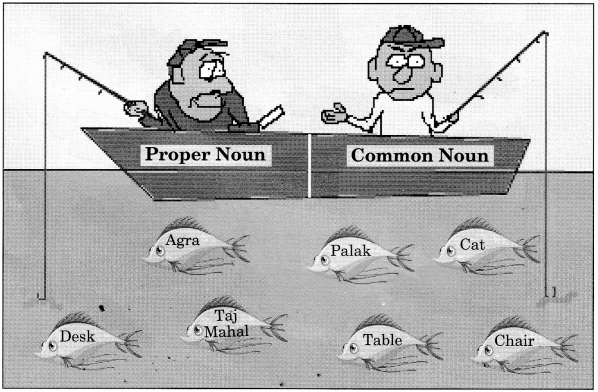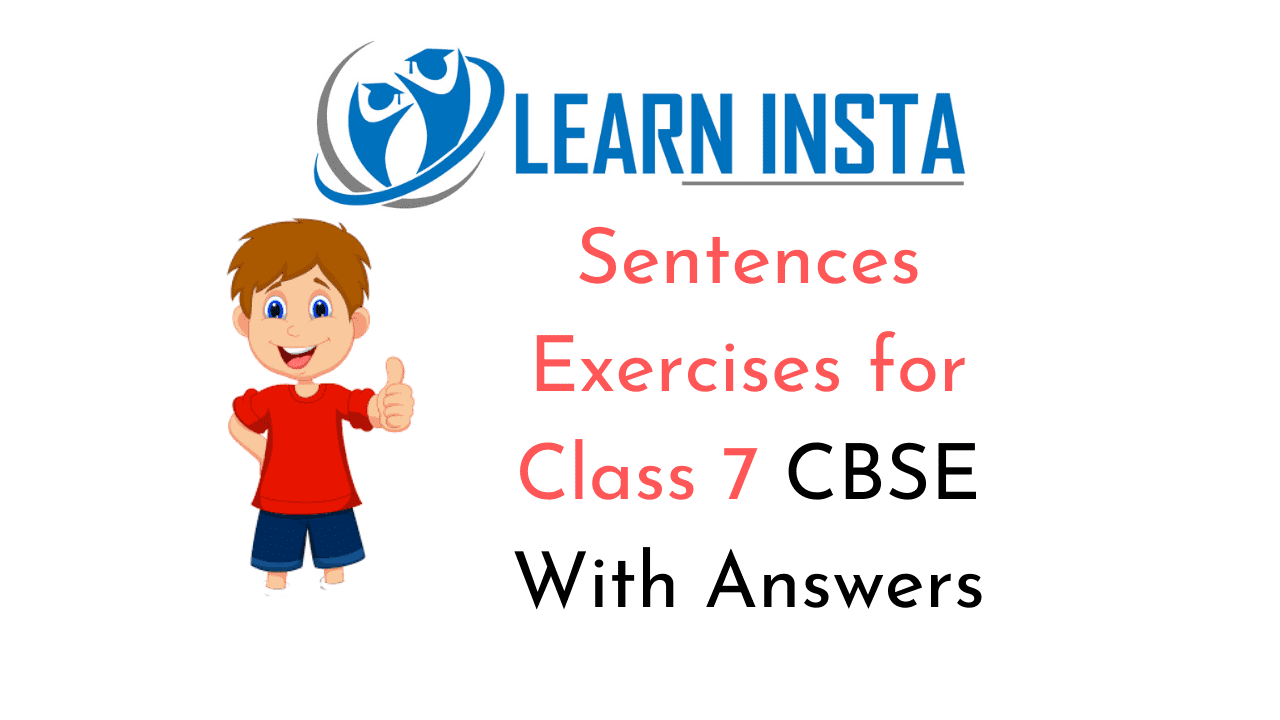
Sentences Exercises for Class 7 CBSE With Answers Pdf
When we speak or write we use words. We generally use these words in groups; as, Little Jack Horner sat in a corner.
A group of words like this, which makes complete sense, is called a Sentence.
This grammar section explains English Grammar in a clear and simple way. There are example sentences to show how the language is used. You can also visit the most accurate and elaborate NCERT Solutions for Class 7 English. Every question of the textbook has been answered here.
Types of Sentences
Sentences are divided into four categories: simple sentences, compound sentences, complex sentences and compound-complex sentences.
| Simple Sentence Definition | A simple sentence contains one independent clause. |
| Examples | Ravi rode his bike to school.
Who is your best friend?
She ate her lunch, took a walk, and went back to work. |
| Compound Sentences Definition | A compound sentence contains two independent clauses. Coordinating conjunction (for, and, nor, but, or, yet, so) often links the two independent clauses and is preceded by a comma. |
| Examples | She wanted to go on vacation, so she saved up her money.
I like apples, but my sister loves bananas.
Umesh loves to read, and he also loves to hike. |
| Complex Sentences Definition | A complex sentence contains one independent clause and one or more dependent clauses.
A complex sentence will include at least one subordinating conjunction. |
| Examples | She went to class even though she was sick.
As Jiwan was arriving to work, he realised he forgot his lunch.
While I enjoy classical music, I prefer rock and roll because I play drums. |
| Compound-Complex Sentences Definition | A compound-complex sentence combines complex sentence and compound sentence forms. A compound-complex sentence contains one or more independent clauses and one or more dependent clauses. |
| Examples | Although she felt guilty for missing her friend’s birthday, she took her out to dinner the next day, and they had a great time.
I try to eat healthy food, but because fast food is so convenient, I cannot maintain a healthy diet.
If he got the job, he would have to commute 50 miles to work, so he decided the job was not worth it. |
Subject and Predicate
Every complete sentence consists of two parts: a subject and a predicate.
While making a sentence we mention a place or a thing and also say something about that person or thing. While the subject is what the sentence is about, the predicate talks about the subject.
Subject:
The part of the sentence which talks about the person or a thing is called the subject of the sentence. The subject of a sentence could be a noun, a pronoun or even an entire phrase or clause.
Predicate:
The part of the sentence which talks about the subject is called the predicate of the sentence. e.g.
(a) Joseph likes to play volleyball
Joseph is the subject of the sentence because the sentence is telling something about the liking of Joseph. And what is it telling? It says that Joseph. And what is it telling? It says that Joseph like to play volleyball. So, in this example the subject is ‘Joseph’ and the predicate is ‘likes to play volleyball.’
To determine the subject of the sentence, we first find the verb in the sentence and then ask ‘who?’ or ‘what?’ in the sentence.
In the above sentence, we first find the verb, the verb here is ‘play. So we first ask, who plays?
The answer will be, Joseph plays and this is how we determine that the subject is Joseph.
(b) The horse ran.
Here the verb is ran, so we first ask, “who ran? The answer is ‘horse’.
So, the subject is “The horse’ and the predicate is ‘ran’.
(c) The car is red.
Here the verb is ‘red’, so we first ask, “What is red? The answer is ‘car’.
So, the subject is “The car’ and the predicate is ‘red’.
Note: The subject usually comes before the sentence, but in exceptional cases, it comes at the end of the sentence.
E.g.
In the above sentences, the verb is ‘comes’, we first ask, “what comes? The answer is ‘train’.
So, the subject is ‘the train’ and the predicate is ‘here comes’.
The Clause
The clause is a group of words having its own subject and a predicate though it does not make a complete sense. It is rather a part of another sentence.
E.g.,
- Because you are feeling well, you can go out today.
The bold part does not make a complete sentence. But since it has its own subject and predicate it is a clause on which the other clause ‘you can go out today’ depends.
More examples
- I will wait for you, although I am hungry.
- They do whatever they decide.
The Phrase
A group of words at the end of the sentence makes a sense, but not a complete sense, is known as a phrase. The phrase may have nouns or verbs, but it does not have a subject and predicate.
E.g.
- Humpty Dumpty sat on a wall.
- The sun rises in the East.
- This is not the right way of doing things.
Types of Sentences
Declarative Sentence
Tells something.
Interrogative Sentence
- Asks a question.
- Ends with a question mark. (?)
Exclamatory Sentence
- Shows strong feeling.
- Ends with a period. (!)
Imperative Sentences
- Gives a command.
- Ends with a period. (. or !)
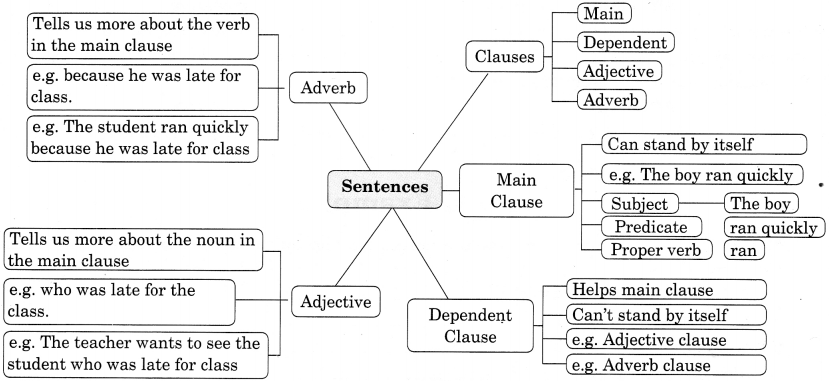
Transformation of Sentences
Affirmative to negative:
Rule 1: Only/alone/merely → Replaced by → None but (person)/nothing but (things)/not more than or not less than (number)
Examples:
Aff: Only God can help us. Neg: None but God can help us.
Aff: He has only a ball. Neg: He has nothing but a ball.
Aff: He has only ten rupees. Neg: He has not more than ten rupees.
Rule 2: Must → Replaced by → Cannot but/Cannot help + (v+ing).
Examples:
Aff: We must obey our parents.
Neg: We cannot but obey our parents/ We cannot help obeying our parents.
Rule 3: Both and → Replaced by → not only but also.
Examples:Aff: Both Deepak and Deepika were excited.
Neg: Not only Deepak but also Deepika were excited.
Rule 4: and (if join two words) → Replaced by → Not only but also.
Examples:
Aff: He was obedient and gentle.
Neg: He was not only obedient but also gentle.
Rule 5: Everyone/everybody/every person/ (every + common noun)/all →Replaced by → There is no + attached word + but.
Examples:
Aff: Every mother loves her child.
Neg: There is no mother but loves her child.
Rule 6: As soon as → Replaced by → No sooner had Than.
Examples:
Aff: As soon as the thief saw the police, he ran away.
Neg: No sooner had the thief saw the police he ran away.
Rule 7: Absolute Superlative degree → Replaced by → No other + attached word + so + positive form + as + subject
Examples:
Aff: Dhaka is the biggest city in Bangladesh.
Neg: No other city is as big as Dhaka in Bangladesh.
Rule 8: Sometimes affirmative sentences are changed into negative by using opposite words. Before the word, off course ‘not’ is used.
Examples:
Aff: I shall remember you.
Neg: I shall not forget you.
Rule 9: Always → Replaced by → Never.
Examples:
Aff: Raman always attends the class.
Neg: Raman never misses the class.
Rule 10: Too to → Replaced by → so that+ cannot/could not (in past).
Examples:
Aff: He is too weak to walk.
Neg: He is so weak that he cannot walk.
Rule 11: As as → Replaced by → Not less than.
Examples:
Aff: Simi was as wise as Rimi.
Neg: Simi was not less wise than Rimi.
Rule 12: Universal truths are changed by making them negative interrogative.
Examples:
Aff: The Sunsets in the west.
Neg: Doesn’t the Sunset in the west?
Rule 13: Sometimes → Replaced by → Not + always.
Examples:
Aff: Raman sometimes visits me.
Neg: Raman doesn’t always visit me.
Rule 14: Many → Replaced by → Not a few.
Examples:
Aff: I have many friends.
Neg: I do not have few friends.
Rule 15: A few → Replaced by → not many.
Examples:
Aff: Bangladesh has a few scholars.
Neg: Bangladesh doesn’t have many scholars.
Rule 16: Much → Replaced by → A little.
Examples:
Aff: He belongs much money.
Neg: He doesn’t belong a little money.
Rule 17: A little → Replaced by → not much.
Examples:
Aff: Danish has a little skill.
Neg: Danish doesn’t have much skill.
Assertive to Interrogative
Rule 1: If the sentence is in the affirmative you have to change it into negative interrogative. If it is in negative then you have to change it into bare interrogative.
Examples:
Ass: He was very gentle.
Int: Wasn’t he very gentle?
Aff: He is not a good person.
Int: Is he a good person?
Rule 2: No auxiliary verb in sentence → Change it by using → Do/does/did Or Don’t/doesn’t/didn’t.
Examples:
Ass: He plays football.
Int: Does he play football?
Ass: They did not play football yesterday.
Int: Did they play football yesterday?
Rule 3: Never → Replaced by → Ever.
Examples:
Ass: I never drink tea.
Int: Do I ever drink tea?
Rule 4: Everybody/everyone/AII → Replaced by →Who + Don’t/ Doesn’t/Didn’t
Examples:
Ass: Everybody wishes to be happy.
Int: Who doesn’t wish to be happy?
Rule 5: Every + noun → Replaced by → Is there any + noun+ Who don’t/doesn’t/didn’t.
Examples:
Ass: Every man wishes to be happy.
Int: Is there any man who doesn’t wish to be happy?
Rule 6: No body/ no one / None → Replaced by → Who.
Examples:
Ass: Nobody could count my love for you.
Int: Who could ever count my love for you?
Rule 7: There is no → Replaced by → Is there any/ Who(person)/ What(thing).
Examples:
Ass: There is no use of this law.
Int: What is the use of this law?
Ass: There is no man happier than Rohit.
Int: Who is happier than Rohit?
Rule 8: It Is no → Replaced by → Is there any/Why.
Examples:
Ass: It is no use of taking unfair means in the exam.
Int: Why take unfair means in the exam? Or Is there any use of this law?
Rule 9: It Doesn’t matter → Replaced by → what though/ Does it matter.
Examples:
Ass: It does not matter if you fail in the exam.
Int: What though if you fail in the exam?
Exclamatory to Assertive sentences
Rule 1: Subject and Verb of exclamatory sentences are to be used as the subject and verb of assertive sentence at the outset of the sentence.
How/what → Replaced by → Very (before adjective)/Great (before noun)
Examples:
How fortunate you are!
Ass: You are very fortunate.
Examples:
What a fool you are!
Ass: You are a great fool.
Rule 2: Sometimes the subject and verb may be eclipsed.
Examples:
What beautiful scenery!
Ass: It is very beautiful scenery.
What a pity!
Ass: It is a great pity.
Rule 3: Hurrah/ Bravo → Replace by → I/we rejoice that/ It is a matter of joy that.
Examples:
Hurrah! We have own the game.
Ass: It is a matter of joy that we have won the game.
Rule 4: Alas → Replace by → I/we Mourn that/ It is a matter of sorrow or grief that.
Examples:
Alas! He has failed.
Ass: We mourn that he has failed.
Rule 5: Had/were/If /Would that (at the outset) → Replaced by → I wish + subject again + were/ had+ rest part.
Examples:
Had I the wings of a bird!
Ass: I wish I had the wings of a bird.
Were I a bird!
Ass: I wish I were a bird.
If I were young again!
Ass: I wish I were young again.
Would that I could be a child!
Ass: I wish I could be a child.
Imperative to Assertive
Rule 1: Add subject + should in doing assertive.
Examples:
Do the work.
Ass: You should do the work.
Rule 2: Please/kindly → Replaced by →you are requested to.
Examples:
Please, help me.
Ass: You are requested to help me.
Rule 3: Do not → Replaced by → You should not.
Examples:
Do not run in the sun.
Ass: You should not run in the sun.
Rule 4: Never → Replaced by → you should never.
Examples:
Never tell a lie.
Ass: You should never tell a lie.
Rule 5: Let us → Replaced by → We should.
Examples:
Let us go out for a walk.
Ass: We should go out for a walk.
Rule 6: Let + noun/pronoun → Replaced by → Subject + might.
Examples:
Let him play football.
Ass: He might play football.
Change of degree
Rule 1: If the sentence has superlative degree, we can change it into comparative and positive degree.
To form comparative, use
subject +verb + adjective/adverb (comp, form) + Than any other + rest part To form positive, use-
No other + rest part after superlative Degree + verb + so/as + positive form of adj/adv + as + sub.
Examples:
Superlative Sumit is the tallest boy in the class.
Comparative: Sumit is taller than any other boy in the class.
Positive: No other boy in the class is as tall as Sumit.
Rule 2: If in superlative degree ‘One of the’ is transformed in this way:
Comparative: Sub+verb +comp. form +than most other+ Rest part.
Positive: Very few+ rest part after supr. Degree + verb + so/as + positive form of adj/adv + as + sub.
Examples:
Sup: Rohit was one of the greatest poets in Bangladesh.
Comp: Rohit was greater than most other poets in Bangladesh.
Pos: Very few poets in Bangladesh were as great as Rohit.
Note: Superlative: Of all/ of any Comparative: Than all other/than any other.
Positive: It does not exist.
Examples:
Sup: Mr. Khan is the oldest of all men in the village.
Com: Mr. Khan is older than all other men in the village.
Pos: No other man is as old as Mr. Khan.
Rule 3: Simple comparative is transformed into positive by using (not so + adj/adv+as)/ (so+adj/adv+as)if negative. Second noun or pronoun is used first.
Examples:
1. Com: Rina is wiser than Mina.
Pos: Mina is not so wise as Rina.
2. Com: Mina is not wiser than Rina.’
Pos: Rina is as wise as Mina.
Rule 4: No/not less — than is transformed into positive by using as +adj/adv+ as
Examples:
Com: Karim is not less meritorious than Suman.
Pos: Karim is as meritorious as Suman.
Types Of Sentences Exercises Solved Examples for Class 7 CBSE
Question 1.
Mention the kind of sentences (Assertive, Interrogative, Imperative, Optative or Exclamatory) in the blanks against it.
(i) Ah! What a kind morning it is! __________
(ii) Do you find it interesting. __________
(iii) Smoking is bad for health. __________
(iv) Always help the needy. __________
(v) Hello! I am Sania this side. __________
Answer:
(i) Exclamatory
(ii) Assertive
(iii) Assertive
(iv) Imperative
(v) Exclamation
Question 2.
Identify the type of sentence.
There are 4 types of sentences in English.
Declarative, Imperative, Interrogative, Exclamatory
(i) How well she sings!
(ii) What is your name?
(iii) Did I say anything to make you angry?
(iv) What is your name?
(v) Who told you this?
(vi) she is a successful writer.
(vii) It is raining cats and dogs.
(viii) I want to become a writer.
(ix) She does not eat meat or fish.
(x) Go at once.
Answer:
(i) Exclamatory,
(ii) Interrogative
(iii) Interrogative
(iv) Interrogative m!
(v) Interrogative
(vi) Declarative
(vii) Declarative
(viii) Declarative
(ix) Declarative
(x) Imperative.
Question 3.
Complete the following sentences by choosing appropriate phrases from the box given below. how to do it to my door in the east on a wall of gold
(i) The sun rises
(ii) I asked my friend to show me
(iii) My mother has a chain
(iv) There came a beggar
(v) Humpty Dumpty sat –
Answer:
(i) in the east
(ii) how to do it
(v) on a wall.
(iii) of gold
(iv) to my door
Types Of Sentences Exercises Practice Examples for Class 7 CBSE
1. Convert the following sentences into simple sentences.
Although he was eager to get married, his parents wanted him to wait.
Answer: _______________________
2. As I was fixing supper, there was a knock at the door.
Answer: _______________________
3. That night Kiran had a dream. It was more like a nightmare.
Answer: _______________________
4. I turned tail and fled away.
Answer: _______________________
5. When the mate dies she doesn’t take a new one.
Answer: _______________________
2. Convert the following sentences into compound sentences.
1. I received your kind letter. I thank you for it.
Answer: _______________________
2. Mother was tired. She announced her intention of going to bed.
Answer: _______________________
3. They’ll keep coming if you keep bothering them.
Answer: _______________________
4. Breathing exercises must be prescribed. They must be carried out under a doctor’s guidance.
Answer: _______________________
5. The journey was very long. I was afraid to take it.
Answer: _______________________
3. Convert the following sentences into complex sentences.
1. I finished the dishes. I went out.
Answer: _______________________
2. A man did this. He must have been very strong.
Answer: _______________________
3. I breathe all right. At least I think so.
Answer: _______________________
4. I won, managing to shock everybody.
Answer: _______________________
5. That night Kiran had a dream and it was more like a nightmare.
Answer: _______________________
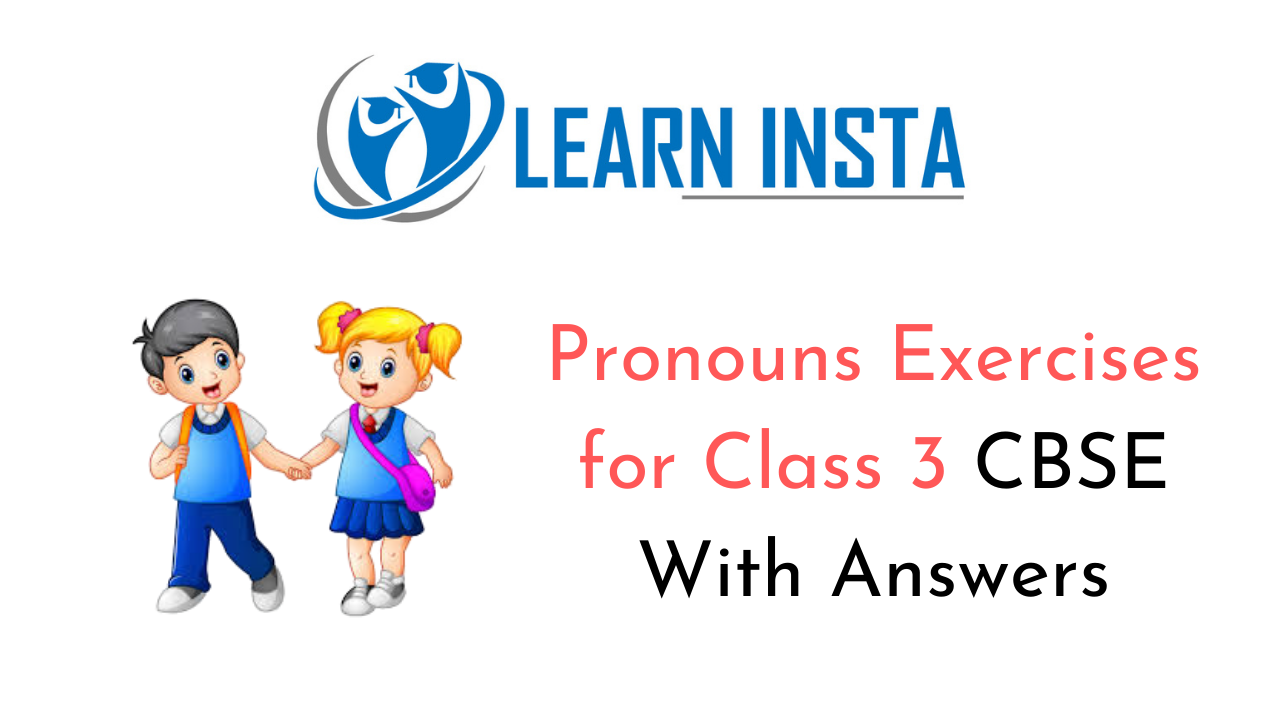
 popcorn ‘John and I’ replaced with ‘We’.
popcorn ‘John and I’ replaced with ‘We’.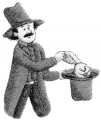 cut a woman in half. Then, he pulled a rabbit from a hat ______________________
cut a woman in half. Then, he pulled a rabbit from a hat ______________________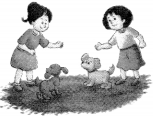 Mary tossed the ball to them. ______________________
Mary tossed the ball to them. ______________________ Rahul went swimming with Paul. They dove under water. After an hour, it ran out ______________________
Rahul went swimming with Paul. They dove under water. After an hour, it ran out ______________________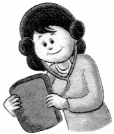 After an hour, it ran out of batteries. ______________________
After an hour, it ran out of batteries. ______________________